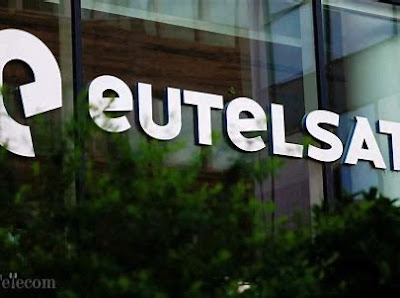What’s In Blue
Dated Wednesday 01 October 2025 - full copy:
Sudan: Closed Consultations
This afternoon (1 October), Security Council members will convene for closed consultations on Sudan. The meeting was requested by Denmark, France, Greece, Panama, the Republic of Korea (ROK), Slovenia, and the UK (the penholder on the file) to receive an update on the humanitarian and political situations in the country, specifically in light of the current escalation of violence in El Fasher in North Darfur state; ongoing efforts to secure a humanitarian pause; and recent diplomatic engagements on Sudan, including during the General Assembly’s high-level week. Personal Envoy of the Secretary-General for Sudan Ramtane Lamamra and Assistant Secretary-General for Humanitarian Affairs Joyce Msuya are expected to brief.
Fierce clashes between the Sudanese Armed Forces (SAF) and the Rapid Support Forces (RSF) continue, as both parties seek to consolidate territorial control. In recent months, there has been an alarming escalation in hostilities in the fighting, which has centred around El Fasher and the Kordofan region. The growing use of advanced weaponry, including long-range drones, has further intensified the scale and complexity of the conflict. A 29 September Washington Post article reported that the RSF now possess anti-aircraft weapons, drones, and surface-to-air missiles. A report published on the same day by the Humanitarian Research Lab (HRL) at Yale School of Public Health identified at least 43 uncrewed aerial vehicles (UAVs) near the RSF-controlled Nyala airport in South Darfur and 36 launchers.
Regional and international initiatives to address the crisis in Sudan have continued, but a meaningful breakthrough remains elusive, as the positions of both Sudanese warring parties and key member states have become entrenched. In recent weeks, the US has sought to reinvigorate peace-making efforts through the convening of the “Quad” countries—Egypt, Saudi Arabia, and the United Arab Emirates (UAE)—to explore ways of generating new momentum. (For more information, see the brief on Sudan in our September 2025 Monthly Forecast.)
On 12 September, the foreign ministers of the Quad countries issued a joint statement calling for an initial three-month humanitarian truce to allow the rapid delivery of assistance across Sudan, with the aim of paving the way for a permanent ceasefire. The statement proposed that an inclusive and transparent transition process be launched and concluded within nine months, leading to the establishment of an independent, civilian-led government with broad-based legitimacy and accountability. The ministers committed to press all parties to the conflict to protect civilians and civilian infrastructure and ensure humanitarian assistance reaches those in need; promote conditions that ensure the security of the broader Red Sea region; counter transnational security threats from terrorist and extremist organisations; and deny space to destabilising regional and domestic actors.
In a 29 September press briefing in New York, US Senior Advisor for Africa Massad Boulos described ongoing discussions on the humanitarian situation in Sudan. He noted extensive engagements with organisations such as the International Committee of the Red Cross (ICRC) and the World Food Programme (WFP), and said that the US is working closely with both the RSF and SAF to facilitate urgent aid delivery to El Fasher, with plans to extend assistance to Kordofan and other affected areas. Boulos also recently held discussions with Under-Secretary-General for Humanitarian Affairs Tom Fletcher, which focused on the urgent delivery of humanitarian assistance. Additionally, the situation in Sudan featured in his exchanges with regional and international stakeholders, including with African Union (AU) Commission Chairperson Mahmoud Ali Youssouf during a September visit to Addis Ababa.
On 24 September, the Quad countries convened at ministerial level on the margins of the General Debate of the 80th session of the UN General Assembly in New York, continuing their discussions on ways to restore peace and security in Sudan.
That day, the AU, the European Union (EU), France, Germany, and the UK convened a ministerial meeting with regional and international stakeholders to address the situation in Sudan and coordinate efforts towards de-escalation and the protection of civilians. The statement issued following the meeting urged the warring parties to resume direct negotiations to achieve a permanent ceasefire and called on them to take all necessary measures to ensure the protection of civilians.
In September, Lamamra undertook a regional tour aimed at advancing peace efforts with the Sudanese parties and relevant interlocutors. In Nairobi, Kenya, he held consultations with independent civilian representatives as well as delegations from the RSF-aligned “Tasis” alliance and the Civil Democratic Alliance of the Revolution’s Forces (“Sumoud”), which emerged earlier this year following a split from the “Taqaddum” coalition led by former Prime Minister Abdalla Hamdok. In a post on X, Lamamra underscored his commitment to engage actors all across the spectrum, irrespective of their political affiliations, to foster consensus on the way forward. He also held a meeting with Kenyan President William Ruto, during which Lamamra reportedly provided an update on his recent peace engagements and discussed ways to intensify efforts to end the conflict.
Lamamra subsequently travelled to Port Sudan, where he met with senior Sudanese officials, including Transitional Prime Minister Kamil Eltayeb Idris and members of his cabinet. According to a 17 September press briefing by Spokesperson for the Secretary-General Stéphane Dujarric, Lamamra also engaged with civilian political actors, women’s groups, and members of the diplomatic corps. Dujarric said that this visit was part of efforts to “lay the complex groundwork necessary to support an inclusive peace process” capable of delivering a sustainable solution. This afternoon, Council members might be interested in hearing Lamamra’s assessment of potential next steps in the mediation process and of ways to address the underlying issues hindering peace efforts.
At the meeting, Msuya is expected to provide an update on the humanitarian situation in light of the evolving security developments and describe efforts by the UN and its partners to deliver aid. The situation is particularly grave in El Fasher, where more than 260,000 civilians—including 130,000 children—remain trapped, according to UN estimates. Civilians in the area are facing growing risks of sexual violence, forced recruitment, and arbitrary detention. As conditions deteriorate, people have resorted to desperate measures, such as eating animal feed and food waste.
Satellite imagery published by Yale’s HRL shows that, since May, the RSF has been constructing a massive earthen berm encircling El Fasher, which now stretches more than 68 kilometres, leaving only a narrow three- to four-kilometre gap. Civilians continue to face daily threats from shelling, airstrikes, and drone attacks. On 19 September, one of the deadliest incidents in recent months occurred when a mosque near the Abu Shouk camp for internally displaced persons (IDPs) was struck by a drone reportedly belonging to the RSF, killing more than 70 people, including at least 11 children.
In a 29 September statement, UN Resident and Humanitarian Coordinator in Sudan Denise Brown called for the lifting of the siege on El Fasher, an end to indiscriminate attacks, and clear orders to fighters to prevent sexual violence and ethnically motivated attacks. She also emphasised the need to guarantee safe passage for civilians wishing to leave the city through open, secure, and accessible routes, while ensuring that those who remain are protected and have access to food, water, and other essential supplies.
Msuya might elaborate on Fletcher’s recent engagements with the Sudanese warring parties. On 24 September, he met with Idris to discuss the expansion of humanitarian access and the UN’s presence in Sudan, including efforts to move pre-positioned aid supplies in El Fasher. The following day, he spoke with RSF leader Mohamed Hamdan Dagalo, expressing grave concern about the humanitarian crisis in El Fasher and stressing the urgent need to protect civilians, halt the fighting, and ensure safe humanitarian access. At today’s meeting, Council members may be interested in Msuya’s assessment about the prospects for securing humanitarian pauses in El Fasher and expanding humanitarian access into the area.
View original: https://www.securitycouncilreport.org/whatsinblue/2025/10/sudan-closed-consultations-9.php
End





